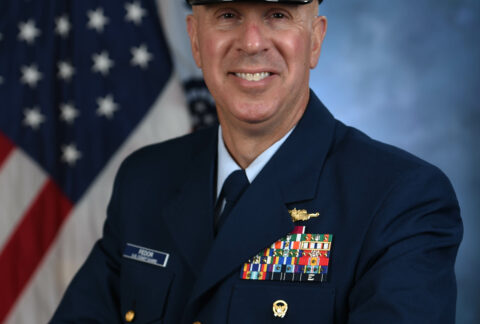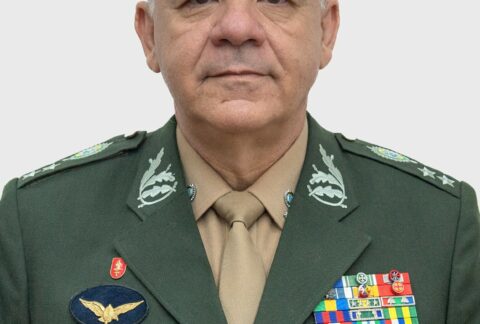The history of the Brazilian Armed Forces reached a milestone in 2014. For the first time, women were able to enter the prestigious Naval Academy (EN, in Portuguese) — a higher education institution of the Brazilian Navy (MB, in Portuguese) in the heart of Rio de Janeiro, with a very competitive application process, where hundreds of candidates compete for a single opening. There were 12 slots exclusively for women and only for the Quartermaster Corps. Those trailblazing women graduated in December 2017, becoming the first female Brazilian midshipmen in the history of the country. Yet only in 2021, were the Naval Academy midshipmen able to qualify for the Naval Fleet or the Marines Corps (CFN, in Portuguese). Six female midshipmen qualified for the Naval Fleet; two of them chose to join the CFN, but only one was accepted. Diálogo spoke with Helena de Souza Monteiro, the first female Marine Corps midshipman in Brazil.
Diálogo: Did it ever cross your mind that in a few years you might be the first woman to command the CFN?
Brazilian Marine Corps Midshipman Helena de Souza Monteiro: Yes. This is a possibility. I’m still a midshipman, but it often crosses my mind that I may be a CFN commander one day. I talked to my classmates about it. This represents a great responsibility, but also an opportunity, something that would be unforgettable and remarkable for the history of the MB and for our lives.
Diálogo: As the first female Marine Corps midshipman, you will be the only woman in a group of men for quite some time. Does that bother you?
Midshipman Monteiro: It doesn’t bother me. Especially because I’m often the only woman participating in activities of the Naval Academy, but the other members act naturally. The same happens with my classmates, being the only woman in class that is, and so forth. Everyone is used to this and it doesn’t interfere with anything. I wonder how it will be in the future, when I join a battalion where nobody knows me. I still don’t think this would ever bother me because I know all the Marines are very professional.

Diálogo: Do you see yourself participating side by side in any operation with your male colleagues, or do you think the standards should be different because you are a woman?
Midshipman Monteiro: The standards and the activities must remain the same. Just as it works for other women who didn’t study at the academy but are also CFN officers. The treatment must remain equal. I see myself carrying out the same activities as my male colleagues.
Diálogo: Do you think that plans to have a family, to have kids in the future, can be considered detrimental, since you are part of the operational area of the MB?
Midshipman Monteiro: No. The MB already takes this into consideration and handles it very well. There are noncommissioned officers and CFN officers who became pregnant and it wasn’t an issue. I have never heard any criticism or anyone consider it detrimental. Nobody complains. Mostly because, as I mentioned previously, CFN members are very professional. I know that the MB will handle it well when my time comes.
Diálogo: Even if you haven’t planned it, you will be — or you are — a role model that other girls look up to. How do you feel about it? Who was your role model?
Midshipman Monteiro: This works as a motivation and a reason for me to apply myself to become the higher standard midshipman that I can be. I always present myself well, modeling good behavior in and out of the Naval Academy. I want to represent the CFN well, and consistently. This is my main focus, not for being a pioneer or a woman, but as a human being and a service member. I always mention my mother as a reference in my life because she has always been a role model for me, consistently focused on my education and my well-being. She will forever be a hero for me.
Diálogo: You’re an only child. Did your father also support your decision to join the military and the CFN?
Midshipman Monteiro: Yes, my father always supported me in everything. He is also a great role model and hero for me, encouraging me to do what I want without fail. He is very proud that I am a service member. Both my parents are thrilled by my professional choice.
Diálogo: What do you think will be your contribution to the MB as its first female CFN midshipman?
Midshipman Monteiro: I will aim to maintain the existing standards. I won’t request changes just because I’m a woman. I realize that a female marine is unusual, but I don’t want special treatment. I want to make a difference and always give it my best, contributing to the nation, to Brazil, in any way, regardless of the challenge before me.









